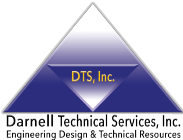Most people believe they have a basic understanding of what a project is. After all, the term is commonly used in a wide array of situations, from building bridges to creating a new operative system or designing a piece of furniture.
But, as it often happens, things become more complicated when we ask questions. For example, what is the difference between projects and processes, or between projects and programs?
To begin answering these questions it’s important to keep it mind that a project is a one-time activity that has three defining elements: scope, schedule, and required resources.
Scope
The scope is the tasks necessary to achieve the desired results, goals or products of a project. The scope is usually expressed in a project scope statement that includes:
- The reasons to initiate the project.
- The key objectives.
- A statement of work.
- Deliverables
- Milestones
- Constraints
- Sign-off from stakeholders.
Schedule, or Time
A project establishes dates when work starts and ends. To determine the amount of time necessary to complete a project, project managers need two pieces of information.
- Sequence: The order in which activities must be performed.
- Duration: How long it would take to complete each activity.
Managers use this data to set milestones and create diagrams that help identify critical paths, that is, the sequences of activities that take longer to complete. Critical paths are important, because they determine the shortest time in which a project can be completed.
Required Resources, or Budget
This includes monetary funds as well as people and other resources such as fixtures and raw materials. Usually a budget goes through three stages.
- Rough estimate: This is made without detailed data, and usually in a short amount of time. It may change substantially.
- Detailed estimate: Here estimated costs for each activity are itemized
- Approved budget: This is a detail budget that has been approved by key stakeholders.
One of the key tasks of a project manager is pondering the tradeoffs between these three elements (scope, schedule and resources) in order to deliver the expected results on time, and on budget.
The Difference Between Project, Process and Program
So, to answer the initial question, there are clear differences between processes, programs and projects. A process is a series of steps to perform a particular function, so unlike projects, they’re not a one-time activity, although processes are often part of projects.
Programs, on the other hand, are a set of goals that are fulfilled through a series of projects. Think, for example, of the American Space Program, which comprised myriad projects in order to achieve its spectacular result: Landing a manned mission on the mon.
At Darnell Technical Services we have the project management expertise to always deliver optimal results. Contact us today by telephone (714-285-0082, 702-945-2899) or through our social media accounts on Facebook, Twitter and LinkedIn and learn more about all the technical instruments and materials we put at your disposal.








